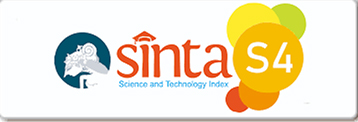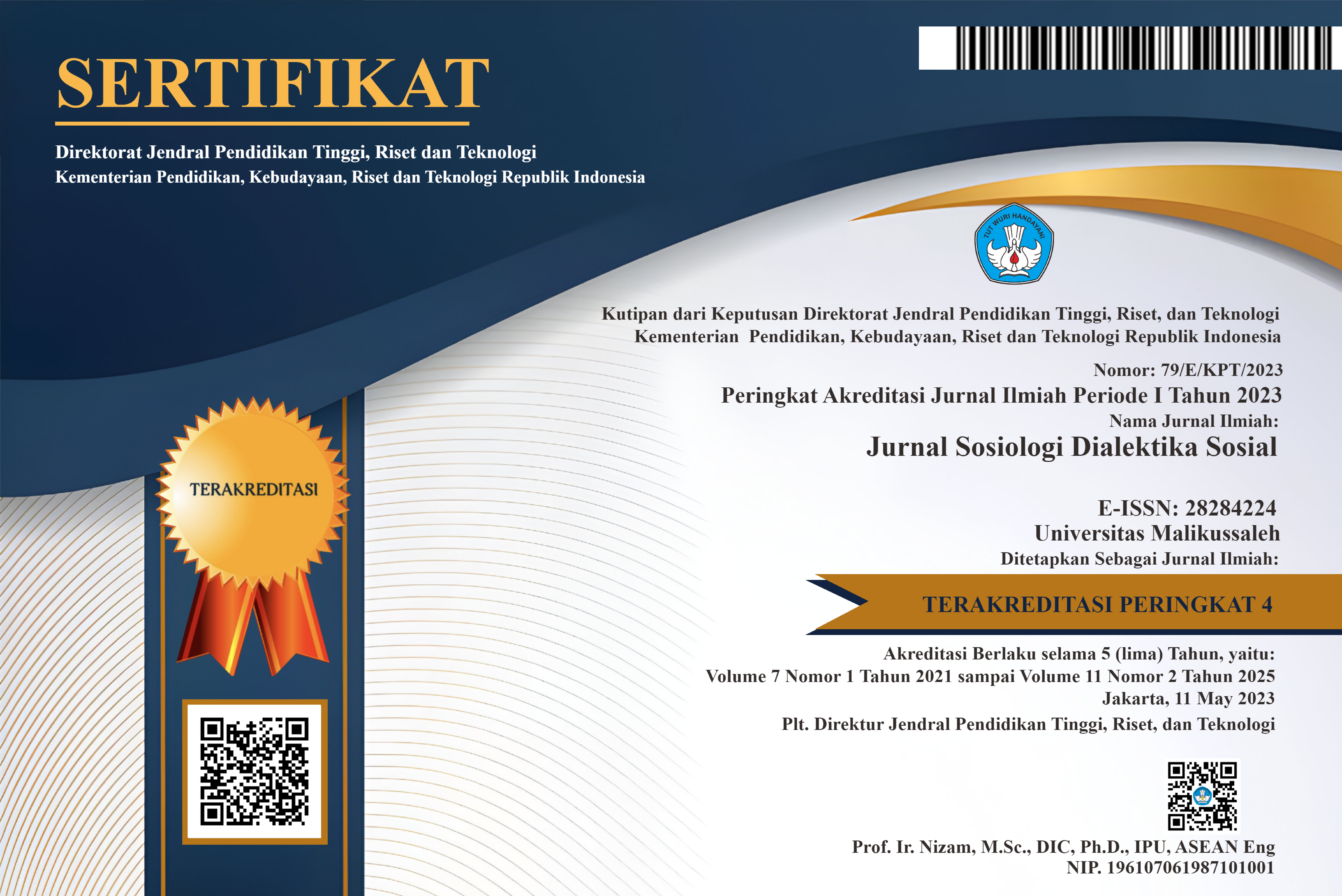STRATEGY OF COMMUNITY ECONOMY EMPOWERMENT THROUGH THE MANAGEMENT OF WAQF ASSETS AT THE BAITUSSALIHIN MOSQUE IN ULEE KARENG, BANDA ACEH CITY
Abstract
This study aims to explore the strategies for empowering the community's economy through the management of waqf assets at Baitussalihin Mosque in Ulee Kareng, Banda Aceh City. The problem formulation encompasses the challenges and opportunities in empowering the community's economy through waqf, focusing on the role of Baitussalihin Mosque as a center of activities and a symbol of philanthropy in its community. The research method used is qualitative descriptive with a case study approach, including interviews, document studies, and participant observation. The main findings highlight important strategies that can be applied, including increasing community participation through extensive socialization, enhancing the competence of waqf managers, collaboration with third parties, improving administrative systems with clear regulations, and utilizing modern technology in waqf management. It is hoped that the holistic implementation of these strategies can significantly contribute to empowering the community's economy through waqf resources, with the potential to enhance the welfare of the community as a whole.
Keywords
Full Text:
PDFReferences
Aziz, Moh. A., Suhartini, R., & Halim, A. (2009). Dakwah Pemberdayaan Masyarakat: Para-digma Aksi Metodologi. PT Lkis Pelangi Aksara.
Bahjatulloh, Q. M. (2016). PENGEMBANGAN PEMBERDAYAAN EKONOMI MASYARAKAT MELALUI KEGIATAN FILANTROPI (Studi Kasus Lembaga Ta-zakka DIII Perbankan Syariah IAIN Salatiga). INFERENSI, 10(2), 473. https://doi.org/10.18326/infsl3.v10i2.473-494
Basith, A. (2012). Ekonomi Kemasyarakatan: Visi & Strategi Pemberdayaan Sektor Ekonomi Lemah. UIN Maliki Press.
Darma, S. (2023). Wawancara dengan Kepala Baitul Mal Banda Aceh.
Fuadi, N. F. Z. (2018). Wakaf sebagai Instrumen Ekonomi Pembangunan Islam. Economica: Jurnal Ekonomi Islam, 9(1), 151–177. https://doi.org/10.21580/economica.2018.9.1.2711
Isa, G. (2023). Wawancara dengan Ketua Badan Wakaf Indonesia Provinsi Aceh.
Maisuri, T. (2023). Wawancara dengan Masyarakat Penerima Manfaat dari Aset Wakaf Masjid Baitussalihin.
Nilna, F. (2015). Rekonstruksi Pengelolaan Wakaf: Belajar Pengelolaan Wakaf Dari Bangla-desh Dan Malaysia. . Universum: Jurnal KeIslaman Dan Kebudayaan, 9(2), 161–171.
Nurlina, E. (2023). Wawancara dengan Dosen Fakultas Ekonomi dan Bisnis USK (Pemerhati Wakaf di Aceh). .
Rusli, Z., Yuliani, F., Sulistianingsih, E., & Sadad, A. (2012). Pemberdayaan Masyarakat Miskin Melalui Program Usaha Ekonomi Desa-Simpan Pinjam (UED-SP). Jurnal Ke-bijakan Publik, 3(2), 59–141.
Soetomo. (2014). Kesejahteraan dan Upaya Mewujudkannya dalam Perspektif Masyarakat Lokal. Pustaka Pelajar.
Sulistiani, S. L. (2021). The Legal Position of Waqf for Non-Muslims in Efforts to Increase Waqf Assets in Indonesia. Samarah: Jurnal Hukum Keluarga Dan Hukum Islam, 5(1), 357. https://doi.org/10.22373/sjhk.v5i1.9161
Syarifuddin. (2023). Wawancara dengan Nazhir Wakaf Masjid Baitussalihin.
Usman, H. (2023). Wawancara dengan Kepala KUA Kecamatan Ulee Kareng.
Zubaedi. (2007). Wacana Pengembangan Alternatif. Ar-Ruzz Media.
DOI: https://doi.org/10.29103/jsds.v10i1.15440
 Article Metrics
Article Metrics
 Abstract Views : 198 times
Abstract Views : 198 times
Refbacks
- There are currently no refbacks.
Copyright (c) 2024 Jurnal Sosiologi Dialektika Sosial

This work is licensed under a Creative Commons Attribution-NonCommercial-ShareAlike 4.0 International License.
Diterbitkan Oleh: Program Studi Sosiologi, Fakultas Ilmu Sosial dan Ilmu Politik Universitas Malikussaleh
REDAKSI JURNAL SOSIOLOGI DIALEKTIKA SOSIAL
Gedung Program Studi Sosiologi, Fakultas Ilmu Sosial dan Ilmu Politik Universitas Malikussaleh. Kampus Bukit Indah, Jln. Sumatera No.8, Kec. Muara Satu Kota Lhokseumawe, Prov. Aceh, Indonesia.
Email: jurnalsosiologi@unimal.ac.id

This work is licensed under a Creative Commons Attribution-NonCommercial-ShareAlike 4.0 International License









.png)




